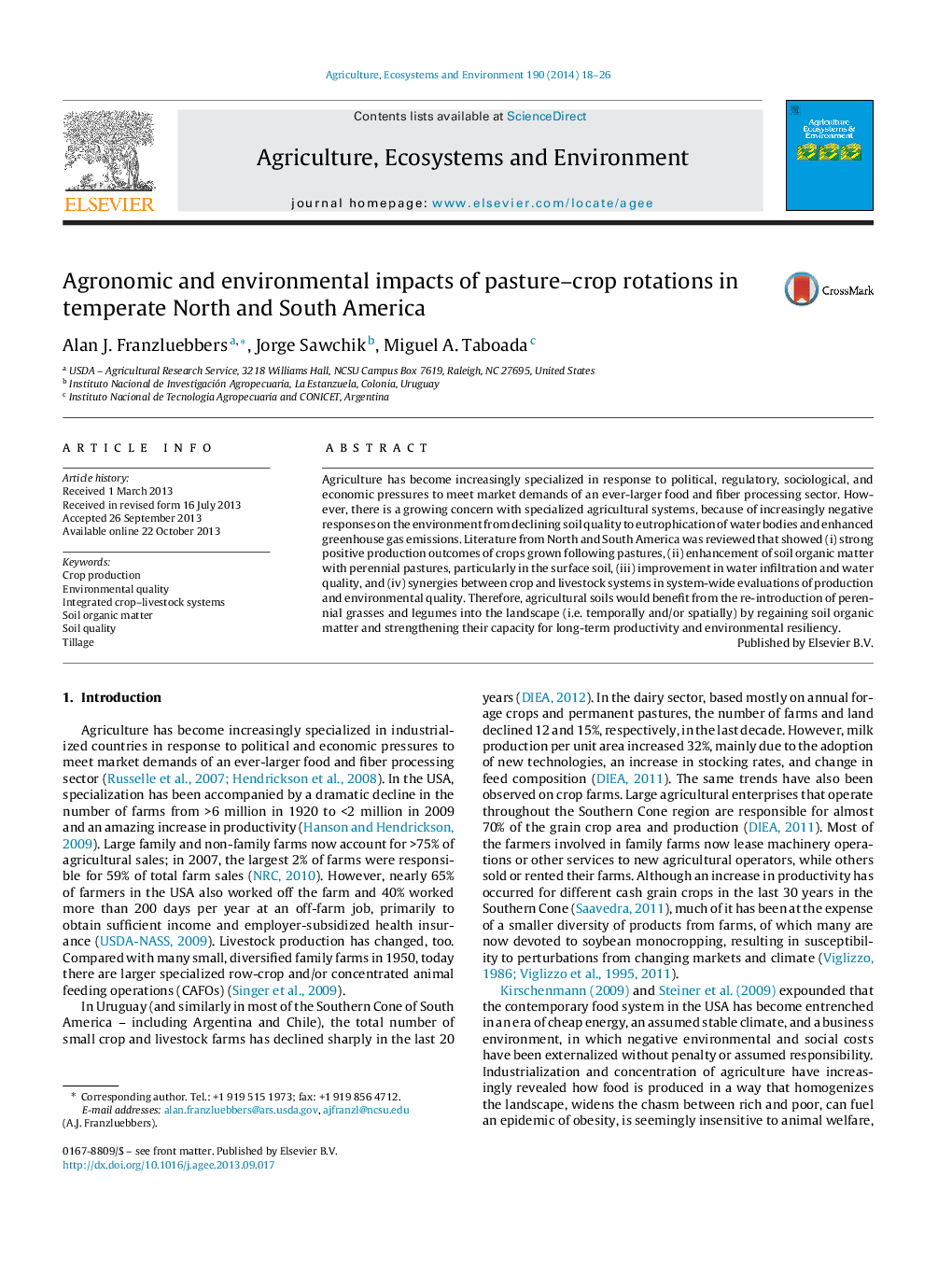| Article ID | Journal | Published Year | Pages | File Type |
|---|---|---|---|---|
| 2414016 | Agriculture, Ecosystems & Environment | 2014 | 9 Pages |
•Negative impacts on the environment are a concern with specialized agriculture.•Soils rooted with perennial forages have high organic matter content.•High soil organic matter content contributes to high soil quality.•Improved soil quality with pasture–crop rotations can improve ecosystem services.•Review of science of pasture–crop rotations in temperate North and South America.
Agriculture has become increasingly specialized in response to political, regulatory, sociological, and economic pressures to meet market demands of an ever-larger food and fiber processing sector. However, there is a growing concern with specialized agricultural systems, because of increasingly negative responses on the environment from declining soil quality to eutrophication of water bodies and enhanced greenhouse gas emissions. Literature from North and South America was reviewed that showed (i) strong positive production outcomes of crops grown following pastures, (ii) enhancement of soil organic matter with perennial pastures, particularly in the surface soil, (iii) improvement in water infiltration and water quality, and (iv) synergies between crop and livestock systems in system-wide evaluations of production and environmental quality. Therefore, agricultural soils would benefit from the re-introduction of perennial grasses and legumes into the landscape (i.e. temporally and/or spatially) by regaining soil organic matter and strengthening their capacity for long-term productivity and environmental resiliency.
